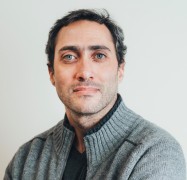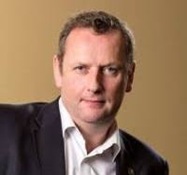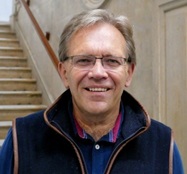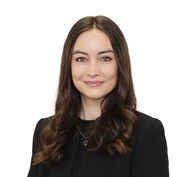

IAgrE Conference 2025
Will Artificial Intelligence revolutionise Agriculture?
Held on Wednesday 22 October from 10am - online
Whether we embrace it or not, Artificial Intelligence (AI) has become an integral part of our daily lives—from routine web searches to sophisticated platforms like ChatGPT. Its growing influence is undeniable, fuelling both excitement and critical debate across industries.
In agriculture, AI is transforming the entire value chain. It enables faster, smarter responses to environmental, technical, visual, and market-driven changes. Engineers, scientists, and technologists are harnessing AI to analyze vast datasets, support complex real-time decision-making, and deploy machine learning systems that can distinguish crops from weeds and detect early signs of disease. These innovations extend beyond arable and horticultural systems into livestock production, where AI is enhancing animal welfare by identifying behavioural anomalies and early health issues.
Looking ahead, a central question emerges: How will AI shape the future of sustainable food systems?
The 2025 IAgrE Conference will explored this question by examining the current landscape and future potential of AI in agriculture. Attendees gained insights into real-world applications, cutting-edge innovations, and the challenges that lie ahead. Presenters showcased real-world applications, shared insights into cutting-edge innovations, and examined the challenges and potential of this technology, bringing together two of the UK Government's six “Priority Industries”, AI and Agri-Tech.
Our conference invited delegates to engage with the evolving role of AI, what it means and how it will assist in tackling the complex global challenges facing agriculture today.
The conference was excellent and well attended with great feedback, and we were delighted to welcome delegates from around the world. The presentations and vidoes will be available here and on our YouTube Channel in due course.
Our speakers:
Intelligence and Robotics in the Farming Landscape: field-ready AI - Fernando Auat Cheein (FIAgrE, IEEE Senior Member) is Professor of Engineering at Harper Adams University and Director of the Harper Institute of Technology. His research focuses on robotics, AI, and intelligent systems for agricultural challenges, with a strong emphasis on perception, autonomy, and the validation of technologies in real-world farming environments. He has led and contributed to multidisciplinary projects across Europe and Latin America, addressing sustainability, standardization, and food security. Prof. Auat Cheein has authored over 200 scientific publications and serves on several editorial boards of journals in robotics and agricultural engineering, as well as on program committees of international conferences. His work bridges academic innovation and practical agricultural applications under diverse regulatory frameworks.
This talk explores the current technology readiness levels (TRLs) of AI and robotics in farming, focusing on real-world deployability. Using case studies from the UK and beyond, it examines adoption trends, global barriers, and key challenges that impact the transition from research to practical use in diverse farming environments.
Catch up with Fernando's PowerPoint Presentation here and watch the recording of the live event on YouTube

Introduction to Garford Robocrop AI, an example of AI deployment in agriculture - Jonathan Henry is Managing Director at Garford Farm Machinery. Jonathan is an agricultural engineer with a wealth of experience in innovative technologies for weed management across a huge range of crops.
His talk explains how the Robocrop system uses artificial intelligence to combine colour, infrared and depth information to precisely identify crop plants and stem location. This technology ensures a higher weed control efficacy, ultimately bringing value to the farmer. Catch up with his Presentation here and see the recording on YouTube here.

Machine Learning in Agricultural Systems: CLAAS Use Cases and Insights - Allan Kildeby - Head of Camera Sensors at CLAAS and an engineer with over 20 years of experience in computer vision, with a focus on its practical application in agricultural automation and driver assistance systems. His work centers on integrating AI, machine learning, and imaging technologies to automate harvesting processes and enhance operational efficiency.
At this conference, Allan shared insights into how AI and computer vision are driving practical innovation in agricultural engineering. Allan's presentation may be found here and you can catch up on the live recording here.

Beyond Automation: How AI Transforms User Experience and Product Lifecycles - Morten Bilde, Managing Director of AGCO Innovation Center Randers, Denmark, explained how AGCO are integrating AI to deliver a better experience to the end user.
Morten is an engineering executive with over 20 years of experience driving innovation in agricultural machinery and smart farming technologies.
With a background in Marine Engineering and Agricultural Mechanics, Morten has held various leadership roles at AGCO Corporation and led international teams, delivering cutting-edge solutions in mechanical, electronic and software systems in agriculture. In his current role, Morten is leading the development of automation solution through co-creation and integration of AI and digital technologies.
We are waiting for a copy of Morten's Presentation but in the meantime you can watch the recording here.
AI: Artificial Insemination Intelligence - Kieran Fitzgerald - As Vice President Digital Services, Kieran leads a team of Product Managers for DeLaval responsible for providing services for DeLaval's customers and dealer network that help them reach their goals. Kieran has a family background in dairy and 20 years professional experience in herd management, reproduction management, feed advice and since 2011 in roles from sales, product management to his current role with DeLaval. He doesn't describe himself as someone who is particularly digital, or cloud, native but is passionate about finding ways for emerging technology to help the dairy industry continue to improve.
"Our objectives haven't changed, as an industry we still aspire to produce milk more efficiently, more profitably and more sustainably (which is much more than only the environmental impact). The tools that we have at our disposal have however changed unrecognisably since Gustaf DeLaval developed the first milking machines. "Artificial Intelligence" is one such tool and in this session we'll discuss some ways that DeLaval use AI to help achieve those objectives."
Kieran's Presentation is here and you can watch the recording here.

AI in Agriculture, Hype or Transformational..? - Simon Pearson FIAgrE is Professor of Agri-Food Technology at the University of Lincoln, where he leads interdisciplinary research at the interface of agriculture, engineering, and data science. He has played a central role in shaping the UK’s agri-tech landscape, working across academia, industry, and policy to accelerate the development and adoption of innovative technologies in food production. In 2025, Simon was awarded the IAgrE Award of Merit in recognition of his contributions to agricultural engineering and technology. His current work focuses on AI-driven automation, digital assurance, and sustainable food systems.
Simon explored how artificial intelligence (AI) is set to transform agriculture over the next two decades. Building on the current momentum, he highlighted the rapid adoption of AI-enabled technologies across the sector—from precision weeding and crop grading to semi-autonomous machinery. The talk considered how far these innovations might go, not just in reshaping agricultural systems and productivity, but also in redefining the roles and realities of farmers and farm workers. Simon reflected on the risks of overhyping AI’s potential, and the importance of developing robust standards, and potentially regulation, to ensure AI in agriculture is deployed safely, ethically, and with public trust.
Find Simon's Presentation here and you can watch the live recording on YouTube here.

Panel Chair - Olivia Midgley is a journalist and editor with 18+ years’ experience of working in publishing across print and digital media.
Currently editorial director of Farmers Guardian, she is spearheading the 180-year-old brand's digital transformation and is responsible for setting the tone and vision of its market leading content. Taking up the reins as editor in 2023, Olivia set about reinvigorating the brand, which included a new digital strategy and redesigned weekly print product. Olivia was named the British Society of Magazine Editors New Editor of the Year in 2024.
A regular pundit across regional and national media channels, Olivia provides analysis on the issues facing farming businesses and helps to promote agriculture as a rewarding career choice.
She is also a director and deputy chair of the Guild of Agricultural Journalists which promotes training and careers for journalists and PR professionals working in agriculture and is a mentor with the Creative Mentor Network which works to make the creative industries more inclusive.

career - your passport to professionalism...
If you have a query about events, click here...



